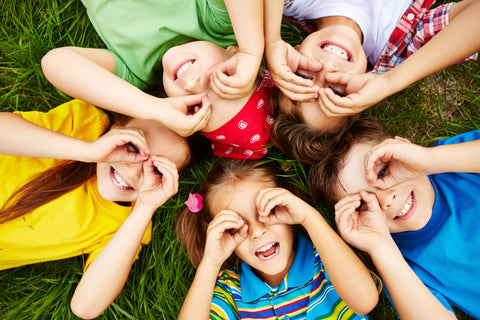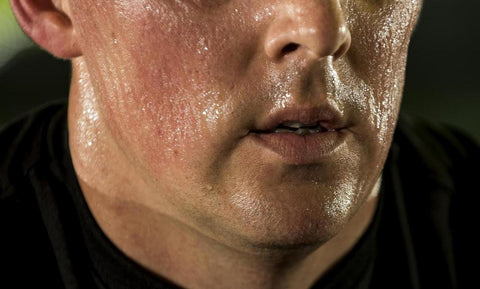Due to poor diet, nutritional deficiencies and stressful, unhealthy lifestyles, hair loss or thin hair, is an extremely common complaint today. Fortunately, there is a very effective way to deal with the problem.
Alopecia areata, known as male pattern baldness and female pattern baldness are the most common types of loss, conditions caused by the side effects of aging.
Possible Causes
- Deficiency of nutrients (especially biotin, zinc, silica, sulphur, magnesium, omega-3, iodine, iron, selenium, and vitamin D)
- Excessive consumption of sugary foods, dairy and white flour products, stimulants (coffee, tea, chocolate, cola, etc.) and refined foods
- Heavy metals
- Chemotherapy and some medications
- Menopause
- Sodium fluoride and chlorine exposure
- Dehydration
- Fungal infections
Illnesses
Illnesses that can lead to hair loss include:
- Hormonal imbalance
- Chronic stress, anxiety, depression and irritability
- Skin diseases
- Autoimmune diseases (alopecia), etc.
- Thyroid disorders
- Psoriasis
- Cancer
- Diabetes
- Trichotillomania
- Lupus
- Polysystic ovary syndrome (PCOS)
Vitamins for hair growth and thickness
- A good quality formula should include Biotin, Zinc, Silica, L-methionine, L-cysteine, B Vitamins, etc.
- Even if your formula already contains some Biotin, take additional Biotin.
Biotin thickens, increases its elasticity and prevents dryness and breakage. It also helps make keratin, a primary component of our hair cells. Biotin deficiency leads to thinning, discolouration, loss and red rashes around the eyes, nose and mouth.

Biotin also helps carries oxygen to the follicles, making them energised and healthy. This is one of the reasons why biotin has been proven to be very beneficial in preventing brittleness and dullness.
- B Vitamins are famous for burning fat and sugars, increasing metabolism and energy levels. They also aid in healthy stress management and nurture the texture, thickness and colour.
- Zinc is a vital mineral for healthy locks, skin and nails. Zinc deficiency can lead to the deterioration of the follicles, weakening them, causing shedding and loss.
- Zinc, Vitamin B5 and B6 are crucial for the normal balance of female and male sex hormones and adrenal hormones.
- Vitamin B5 (Pantothenic acid), B12, Biotin, Folate, Zinc, and PABA strengthen and help to prevent greying.
- Amino acids (L-Methionine and L-Cysteine) are rich in sulphur, which increases the concentration of keratin (protein), the key building block of hair, skin and nails.
Without L-Cysteine, L-Methionine and keratin, the body could not make hair fibres.
- Selenium is essential for a strong immune system, it is also involved in maintaining smooth and elastic skin, strong and durable nails, and healthy locks.
Selenium is needed for the proper functioning of thyroid involved in preventing hair loss. It has also anti-dandruff properties and helps remove fungus from the scalp.
- Iron is required for proper wound healing and helps improve texture by increasing the flow of oxygen and nutrients to the roots.
- Vitamin E contributes to hormonal balance. It also promotes blood circulation and oxygenation, which aids the body in producing new cells.
- Inositol helps lower levels of Dihydrotestosterone (DHT), which triggers the production of DKK-1, known to cause death of specialised cells, responsible for the nourishment of the follicles.
- Vitamin C helps produce collagen, the protein found in hair follicles and skin. It also protects cells from free radicals as it is an antioxidant.
- Chlorella, Spirulina or other super greens such as Barley grass powder can be used to detoxify the body.
- Magnesiumis needed to create strong follicles. Vitamin D supplements should not be taken without Magnesium as vitamin D remains inactive without magnesium.
Taking Vitamin D supplements alone can lead to Magnesium deficiency.
- If mood problems and stress are among the factors that contribute to hair loss, then Ashwagandhaand 5-HTP are useful and regular exercise should be helpful.
- If your locks are dry, it can be caused by hot and dry air in your room, dehydration, Omega 3 deficiency or other factors including excessive washing and blow-drying. In this case you need to drink more water between meals.
- Paraaminobenzoic acid (PABA) has been used to stimulate growth and reduce greying, that is associated with nutrient deficiency and/or stress. Dark leafy green vegetables, beans, seeds, wholegrains, organ meats, eggs are good sources of these nutrients.
- Hair-vit® contains all of the key vitamins and minerals, mentioned above. Such as B vitamins, PABA, Inositol, Iron and Zinc and many more, to boost your hair health.
Best Foods for Growth
- Eggs
- Berries
- Spinach
- Fish
- Sweet potatoes
- Avocados
- Nuts
- Seeds
- Peppers
- Oysters
- Beans
- Soybeans

Topical Applications
- Black seed oil
- Raw organic coconut oil
- Cold-pressed castor oil
- Onion juice stimulates re-growth! Peel an onion and chop it into small pieces. Blend, grate or juice. Mix about two tablespoons of fresh onion juice with two tablespoons of cold-pressed castor oil or raw coconut oil.
If you want this mixture to be even more effective, you can add a few drops of tea tree oil. Gently massage the mixture to your scalp and leave overnight.
In the morning wash with a good-quality shampoo or rinse it, using only water with lemon juice or apple cider vinegar to get rid of the onion smell.
Nutrition & Lifestyle
- Avoid/significantly reduce consumption of refined foods (sugar, white flour products, etc.), animal protein, meat products, dairy products (especially cheese and pizza).
- Avoid stimulants including alcohol, coffee and caffeinated products.
- Exercise every day for 30 to 60 min.
- Take alternative hot and cold showers to improve blood circulation.
- Include cooked and/or raw onion and garlic in your diet as they are high in sulphur. Sulphur is one of the key building blocks of healthy hair.
- Increase serotonin levels through exercise, sunlight, consuming organic tofu, and complex carbohydrates instead of refined ones.
Tips
- Hair masks are also useful to renourish the follicles and promote growth.
- Air drying instead of using a blow dryer is much better.
- Use a wide toothed comb and brush your hair gently to get rid of lose hair.
- Use heat protection to protect your hair, if you have to use heat treatments or heat styling tools.
- Wash your hair as little as possible, try for once a week.
- Keep dying and bleaching to a minimum.
- Take regular trips to the hairdressers and get a trim/cut.
Related Articles
Sources
- Arslan M1, Vurucu S, Balamtekin N, et al (2009) The effects of biotin supplementation on serum and liver tissue biotinidase enzyme activity and alopecia in rats which were administrated to valproic acid. Brain Dev. 2009 Jun;31(6):405-10. doi: 10.1016.
- Blume-Peytavi, U. at all. (2008) Hair Growth and Disorders. Springer-Verlag Berlin Heidelberg. 2008.
- Goldberg, L.J. at all. (2010) Nutrition and hair. Clin Dermatol. 2010 Jul-Aug; 28(4):412-9.
- Boelsma E, Hendriks HF, Roza L., (2001) Nutritional skin care: health effects of micronutrients and fatty acids. Am J Clin Nutr. 2001 May; 73 (5): 853-64.
- Brzezinska-Wcislo L., Evaluation of vitamin B6 and calcium pantothenate effectiveness on hair growth from clinical and trichographic aspects for treatment of diffuse alopecia in women. Wiad Lek. 2001; 54 (1-2): 11-8.
- Colombo V.E., Gerber F., Bronhofer M., Floersheim GL., Treatment of brittle fingernails and onychoschizia with biotin: scanning electron microscopy. J Am Acad Dermatol. 1990 Dec; 23 (6 Pt 1): 1127-32.
- Heinrich U., Tronnier H., Stahl W., Béjot M., Maurette J.M., Antioxidant supplements improve parameters related to skin structure in humans. Skin Pharmacol Physiol. 2006; 19 (4): 224-31.
- Kim J.E., Yoo S.R., Jeong M.G., Ko J.Y., Ro Y.S., Hair Zinc Levels and the Efficacy of Oral Zinc Supplementation in Patients with Atopic Dermatitis. Acta Derm Venereol. 2014 Jan 28.
- Lockwood D.S., Ding D.L., Wang J., Salvi RJ., D-Methionine attenuates inner hair cell loss in carboplatin-treated chinchillas. Audiol Neurootol. 2000 Sep- Oct; 5 (5): 263-6.
- Morganti P, Fabrizi G, James B, Bruno C. Effect of gelatin-cystine and serenoa repens extract on free radicals' level and hair growth. J Appl Cosmetol 1998; 16(3): 57–64.
- Yang M, Moclair B, Hatcher V, Kaminetsky J, Mekas M, Chapas A, Capodice J., A Randomized, Double-Blind, Placebo-Controlled Study of a Novel Pantothenic Acid-Based Dietary Supplement in Subjects with Mild to Moderate Facial Acne. Dermatol Ther (Heidelb). 2014 May 16.
- J Dermatol. 2002 Jun;29(6):343-6. PMID: 12126069
- Yakugaku Zasshi. 1993 Oct;113(10):718-24. PMID: 8254481
- http://www.americanhairloss.org/women_hair_loss/causes_of_hair_loss.asp
- Best Foods for Hair Growth: What to Eat, Drink & Avoid (healthline.com)
Images: Image by freepik
Any information or product suggested on this website is not intended to diagnose, treat, cure or prevent any medical condition. Never disregard medical advice or delay in seeking it because of something you have read on this website. Consult your primary healthcare physician before using any supplements or making any changes to your regime.




